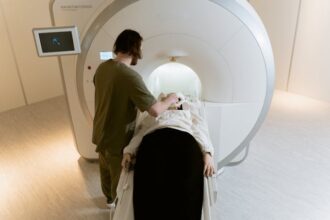Research conducted at the Saint Louis University School of Medicine has unveiled significant findings regarding old adults, anxiety, dementia, and the role of benzodiazepines. The study, entitled “Anxiety Disorders, Benzodiazepine Prescription and Incident Dementia,” published in the Journal of the American Geriatrics Society, reveals a nuanced relationship between these elements. Patients aged 65 and older diagnosed with anxiety were found to have a notably higher likelihood of developing dementia. Moreover, exposure to benzodiazepines was linked to a 28% elevation in dementia risk. However, for those receiving benzodiazepines for an anxiety disorder, no significant correlation with dementia was observed, suggesting a complex interplay between anxiety management and dementia risk.
Jay A. Brieler, M.D., an associate professor of family and community medicine at SLU, spearheaded the research as the primary author, with Jeffrey Scherrer, PhD, a professor in the same department and a member of the AHEAD Institute, serving as the senior author. Their investigation aimed to discern the contributions of anxiety and benzodiazepine use to dementia risk amidst concerns over benzodiazepine-related dementia implications. The study’s conclusions indicate that both anxiety and benzodiazepine use independently are associated with increased dementia risk. Yet, when benzodiazepines are prescribed for anxiety disorders, this risk does not significantly change.
This retrospective cohort study meticulously analyzed electronic health records from 72,496 patients spanning 2014 to 2021, utilizing data from the Saint Louis University-SSM Healthcare System’s Virtual Data Warehouse (VDW). This resource, developed by the Advanced HEAlth Data (AHEAD) Research Institute at Saint Louis University, encompasses a vast array of clinical encounters and has been instrumental in facilitating research that would otherwise be challenging due to the logistical and financial constraints of longitudinal studies.
The findings underscore the complexity of treating late-life anxiety, particularly with benzodiazepines, which have been the subject of debate due to their association with cognitive impairment, falls, and fractures in the short term. The study highlights the critical need for careful consideration in the prescription of benzodiazepines to older adults, given their potential implications for dementia risk. Anxiety in older adults, associated with a spectrum of adverse health outcomes such as cardiovascular disease, depression, and chronic disease burden, presents a significant public health challenge, particularly as the population ages.
The study’s insights are particularly timely, given the projected increase in Alzheimer’s and related dementia diagnoses, which is expected to double by 2060. These findings advocate for a nuanced approach to managing anxiety in older adults, emphasizing the importance of further research to explore alternative anxiety treatments and their impacts on dementia risk. The authors call for additional studies to ascertain whether the association with incident dementia varies with the use of other anxiety medications, underscoring the ongoing quest for optimal strategies to mitigate dementia risk while effectively managing anxiety in the ageing population.
This research not only contributes to our understanding of the interrelations between anxiety, benzodiazepine use, and dementia risk but also exemplifies the value of leveraging real-world clinical data to address complex health questions. The support of the Saint Louis University Research Institute and the collaboration among a diverse team of researchers underscore the collective effort to improve the care and outcomes of older adults facing the dual challenges of anxiety and the risk of dementia.
More information: Jay A. Brieler et al, Anxiety disorders, benzodiazepine prescription, and incident dementia, Journal of the American Geriatrics Society. DOI: 10.1111/jgs.18515
Journal information: Journal of the American Geriatrics Society Provided by Saint Louis University








